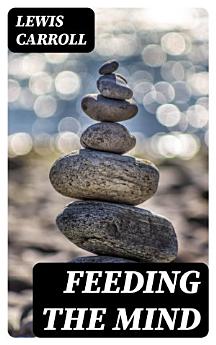Feeding the Mind
Sep 2022 · DigiCat
Kitabu pepe
137
Kurasa
family_home
Kimetimiza masharti
info
reportUkadiriaji na maoni hayajahakikishwa Pata Maelezo Zaidi
Kuhusu kitabu pepe hiki
In "Feeding the Mind," Lewis Carroll weaves a captivating tapestry of whimsy and intellect, merging playful narrative with profound philosophical inquiry. Through clever dialogues and fantastical scenarios, Carroll explores the expansive realms of imagination and thought, inviting readers to reconsider the boundaries of knowledge. His trademark blend of absurdity and logical play creates a unique literary style that not only entertains but also challenges conventional wisdom, echoing the spirit of the Victorian era's burgeoning interest in science, literacy, and the nature of reality. Lewis Carroll, born Charles Lutwidge Dodgson, was an enigmatic figure whose dual identity as a mathematician and writer profoundly influenced his storytelling. His fascination with language, numbers, and the whimsical tendencies of the human mind are vividly reflected in this work. Carroll's experiences as an educator and his interactions with children provided him with insights into the importance of fostering creativity and critical thinking, which are central themes throughout "Feeding the Mind." This book is highly recommended for anyone interested in the intersection of imagination and intellect, as well as for those who seek to understand the intricacies of logic through the lens of playful absurdity. Carroll's enchanting prose offers both a delightful reading experience and a thoughtful commentary on the art of learning, making it an invaluable addition to the literature of both fantasy and philosophy.
Kuhusu mwandishi
Born Charles Lutwidge Dodgson on January 27, 1832, Lewis Carroll was a renowned English writer, mathematician, logician, Anglican deacon, and photographer. Best known for his enduring works of children's fiction, notably 'Alice's Adventures in Wonderland' (1865) and its sequel 'Through the Looking-Glass' (1871), his writings have transcended age, offering a peculiar blend of whimsy, satirical commentary on Victorian society, and linguistic dexterity. Apart from his literary endeavors, Carroll's scholarly contributions as a lecturer in mathematics at Christ Church, Oxford, are also significant. His lesser-known yet insightful essay 'Feeding the Mind' (1907), published posthumously, delves into the importance of intellectual nourishment and cultivation of the mind, echoing the intellectual spirit that Carroll imbued in all his creative pursuits. Not merely an author of fanciful tales, Carroll possessed an adeptness for playing with logic and structure, often embedding mathematical concepts into his literary works, and thereby enticing readers into deeper layers of interpretation. His influence on both children's literature and the genre of literary nonsense is vast and persists even in contemporary literary circles. Carroll's imaginative storytelling, where logic intertwines with fantasy, continues to captivate, amuse, and provoke thought among readers, scholars, and literary aficionados worldwide.
Kadiria kitabu pepe hiki
Tupe maoni yako.
Kusoma maelezo
Simu mahiri na kompyuta vibao
Sakinisha programu ya Vitabu vya Google Play kwa ajili ya Android na iPad au iPhone. Itasawazishwa kiotomatiki kwenye akaunti yako na kukuruhusu usome vitabu mtandaoni au nje ya mtandao popote ulipo.
Kompyuta za kupakata na kompyuta
Unaweza kusikiliza vitabu vilivyonunuliwa kwenye Google Play wakati unatumia kivinjari cha kompyuta yako.
Visomaji pepe na vifaa vingine
Ili usome kwenye vifaa vya wino pepe kama vile visomaji vya vitabu pepe vya Kobo, utahitaji kupakua faili kisha ulihamishie kwenye kifaa chako. Fuatilia maagizo ya kina ya Kituo cha Usaidizi ili uhamishe faili kwenye visomaji vya vitabu pepe vinavyotumika.







